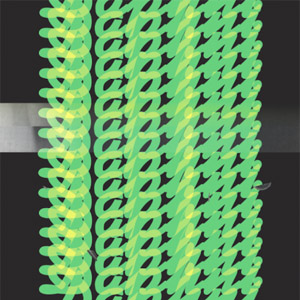Daphni Jiaolong
Fans of Dan Snaith’s Caribou project are not automatically going to be fans of Daphni, […]

Fans of Dan Snaith’s Caribou project are not automatically going to be fans of Daphni, the man’s less-established handle under which he’s applied his talents to more eccentric, dancefloor-inspired tracks. Still, a lot of what makes Caribou so enjoyable—Snaith’s unique combinations of textures, penchant for unexpected grooves, and uncanny ability to absorb the listener into his productions—continue to serve as the foundation of his work on Jiaolong. Instead of refracted pop songs woven through electronics, Snaith brings the gurgled synths, lopsided loops, and clattering rhythms which usually lie at the bed of his work to the forefront, and the results are just as spellbinding.
Daphni is often referred to as Snaith’s “house project,” but that can be a bit misleading. Yes, all the songs on Jiaolong float around house tempos while utilizing recognizable dance-music patterns at the base of their structures (there’s plenty of four-on-the-floor to be heard here), but there is no mistaking these songs for something one would expect from any of house music’s current heavy hitters. In a sense, the LP is less “club music” and more “dance music,” as Snaith leaves his own unmistakable mark on every track, never hesitating to take an opportunity to venture into the weirder side of dancefloor-oriented music. Synths are often tweaked far beyond simple chords and melodies, looped samples appear in the blink of an eye and fall apart without notice, and even when the LP has its more straightforward moments, it still never reaches the sonic weight of bass music or the pristine sheen of modern house. This tendency towards the unexpected makes for a record that is admittedly less masterful and orchestrated than, say, Swim, but that’s because the desire here is for adventure, and Snaith proves to be a fine guide when it comes to these sorts of expeditions.
It’s not a stretch to say that starting a “dance project” in 2012 has become a bit trendy, but Daphni obviously can’t be written off as the work of a buzz-chasing newcomer. Snaith has always had a strong thread of dance music running through his productions (check Caribou’s 2001 debut LP, Start Breaking My Heart—originally released under the name Manitoba—for the earliest evidence of such), and Jiaolong proves that he’s no stranger to the subtler elements that make for a good dance track. For instance, the opening “Yes, I Know” builds in patient steps, leaving ample room in its intro for proper DJ mixing before dropping a horn-laden soul sample atop the established buzzing synth line (it all adds up to sound like a mellower version of Daft Punk’s “Burnin”). Alternately, songs like “Ye Ye” and “Ahora” find ways to dig deeper and deeper into their chugging rhythmic tunnels. There’s a natural, but somehow untraceable path to each track, and even when Snaith ventures off onto stranger tangents—such as the maniacal latter half of “Light,” the uneasy live instrumentation samplings of “Jiao,” or the hard-to-pin-down, boogie-indebted break of “Springs,” the listener is never fully thrown off course; Snaith rustles them just enough to make sure they’re paying attention.
For all its ability to fit the slightly bizarre and the genuinely unexpected into dance music—a format that can at times seem all too strict or even stale in the wrong hands—this album is still nothing if not fun. For those who listen to club music purely for the otherworldly sonics or the intensely thick low-end constructions (not that there’s anything wrong with that), this record may not have much to offer. But for those who seek out dancefloors in order to witness the unravelling of an electronic journey, this is one of only a handful albums this year to have delivered exactly that. Fewer still have done so with such distinctness.

